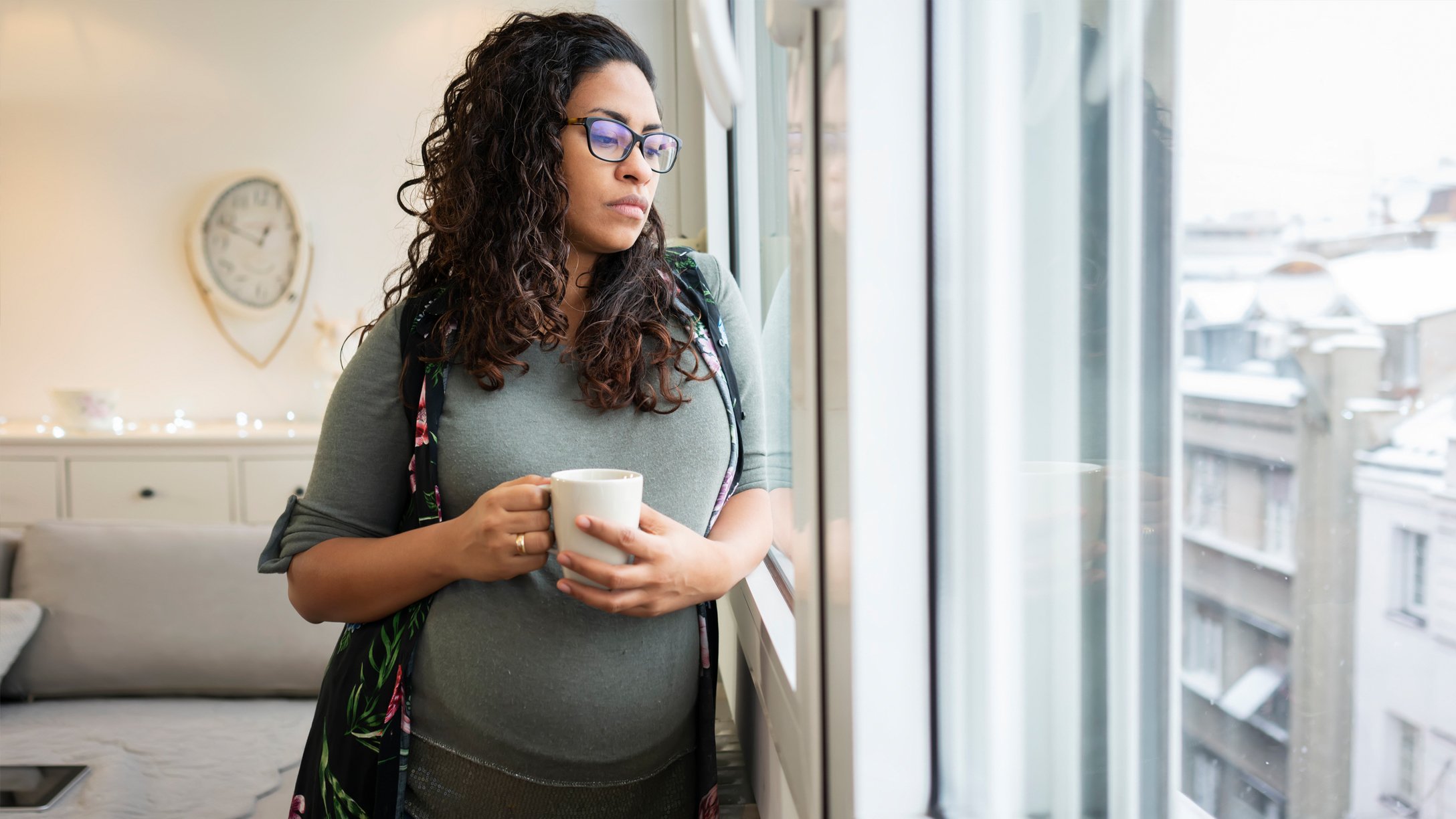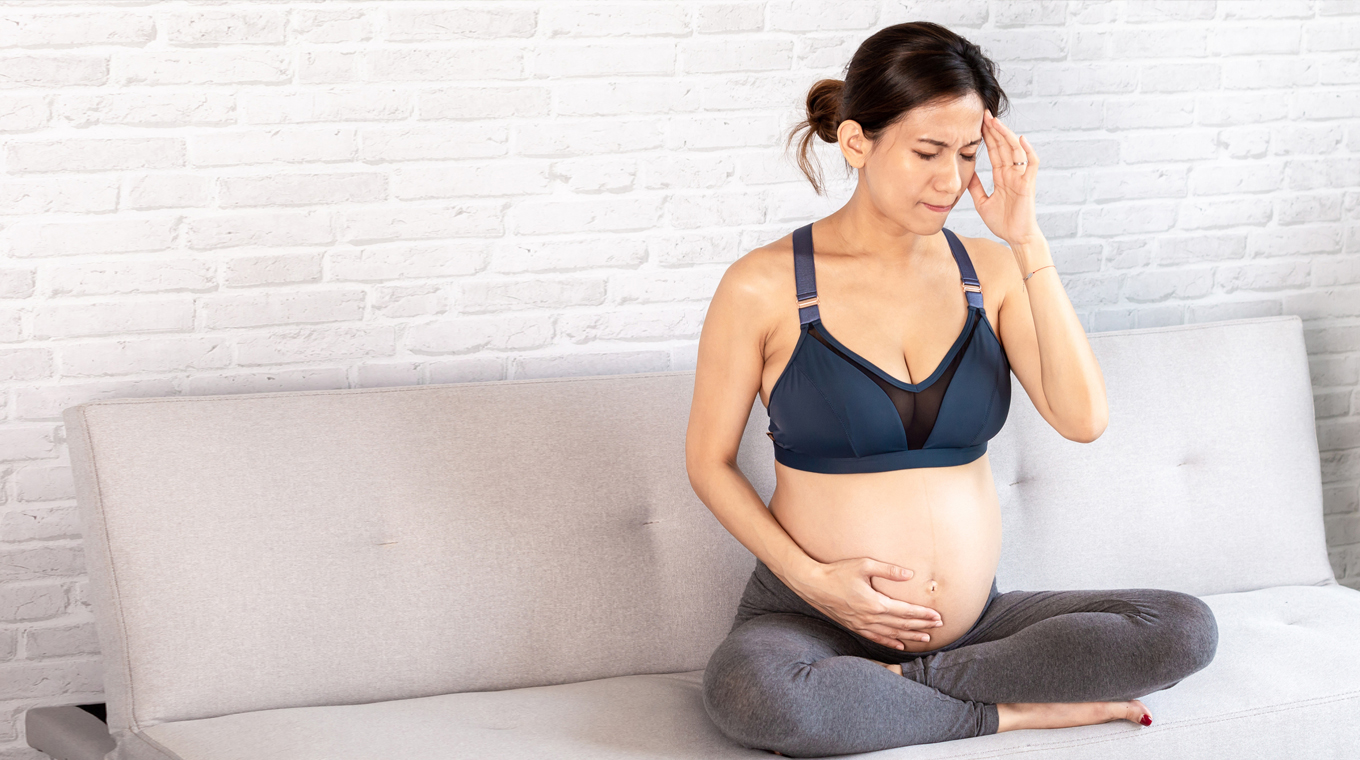
In this article
If you’ve never been pregnant before — or even if you have — you might be a little surprised about how dramatically your mental health can change while pregnant. Of course, you’re in the middle of a lot of changes in your body and in just about every aspect of your life, and even if you’re excited about the adventure that pregnancy and motherhood will bring, it can certainly take a toll on how you feel physically and mentally.
Knowing if you’ve struggled with anxiety and depression in the past and figuring out how to mentally prepare for pregnancy is important, but there’s no way to fully know how it will affect you until you’re actually doing it. Those hormones are no joke!
Pregnancy is the perfect time to keep an eye out for signs of poor mental health and keep your mind in check — after all, you’re focusing more on taking care of your body as you grow your baby, and your brain is part of that, too.
Pay attention to your mental health while pregnant

Though it’s good to be aware all the time, it’s especially important to watch for signs of depression while you’re pregnant. According to the Centers for Disease Control and Prevention, symptoms of depression include:
- Feeling irritable or frustrated more often
- Not finding joy in the things that usually make you happy
- Feeling sad or anxious often
- Changes in appetite
- Changes in your sleeping habits
- Feeling fatigued
- Feeling helpless or worthless
Of course, mood changes are expected while you’re pregnant, but you might also be experiencing something a little more than just hormonal mood swings.
“Throughout the pregnancy, I’d cry and cry and cry and cry. I’d go out and live life and smile in between, but I remember the constant emotional undercurrent of guilt and shame concerning my pregnancy,” mom Jill Simonian wrote for Mom.com.
If any of these symptoms sound familiar to you, remember that you’re not alone. Mental health problems in pregnancy are more common than you might think — after all, women have been shown to be more likely to suffer from depression while they’re expecting — and lingering effects of the COVID-19 pandemic on mental health could be another obstacle you’re facing right now, too.
Mental health problems in pregnancy

Though we hear a lot about postpartum depression and postpartum anxiety, it’s also important to be on the lookout for prenatal depression, or depression while pregnant, especially if you’ve experienced these feelings pre-pregnancy. And according to researchers at Northwestern University, prenatal depression can certainly be intense.
“These women are often juggling a multitude of life stressors, such as pregnancy complications, as well as family and financial stress. In many instances, they struggled with depression or anxiety before they became pregnant,” researcher Sheehan Fisher, PhD, told The Washington Post.
Anxiety is also common while you’re expecting, which isn’t surprising, considering many moms-to-be may not know how to manage stress in pregnancy with so many changes happening at the same time.
And remember: You should not feel guilty about experiencing mental health problems in pregnancy. It doesn’t mean you don’t want or love your baby or that you aren’t grateful to be pregnant — feeling depressed or anxious is not your fault.
Need help with mental health? Here's how to get it.

If you’re struggling with feelings of depression and anxiety, you don’t need to carry that weight by yourself. Being open with your partner — and others in your life you trust — about how you’re feeling might help, and sometimes it’s necessary to turn to the experts to find out how to manage depression during pregnancy as well. It can be hard to take that step, but it’s something you’ll never regret.
There are a few different options for anxiety and depression treatment — and even though you’re pregnant, that does include medication that is perfectly safe for you and your baby. The first step in getting help can be talking to your OB-GYN, who might be willing to prescribe medication to you themselves or who can refer you to a therapist for a treatment plan.
It’s also possible to get help without leaving the house — or even having to speak about your feelings out loud. There are online services, like Talkspace, that will connect you to a therapist who’s available via video or audio chat as well as text message, though they may or may not accept insurance.
The good news? Research shows that depression or anxiety in pregnancy doesn’t necessarily mean you’re going to battle postpartum depression, too, so you may feel better after you’ve given birth. But even if you do experience postpartum depression, getting your mental health in check now will make you all the more prepared to handle whatever may come your way.



